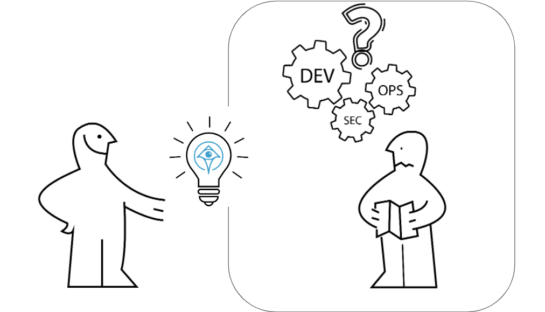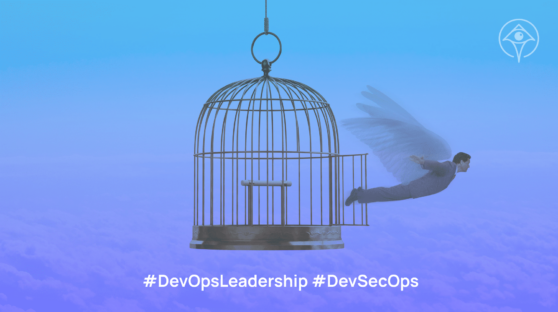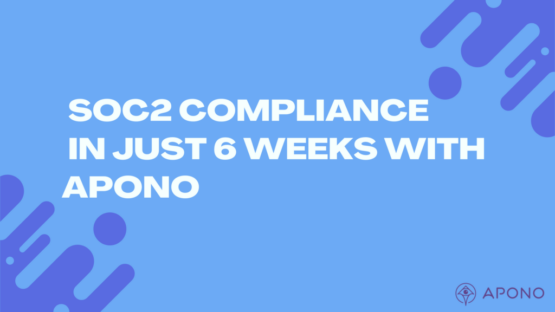Navigating the Future: DevOps Predictions for 2024

Ofir Stein
January 28, 2024

As technology continues to evolve at an unprecedented pace, the field of DevOps is no exception. DevOps, the cultural and professional movement that aims to improve collaboration between software development and IT operations, is predicted to transform, expand, and evolve significantly in 2024. In this blog post, we explore some key predictions for the DevOps landscape in the coming year.
GenAI Solidifies Its Place in DevOps:
It’s no understatement to say that generative AI (GenAI) was a core theme of 2023. Continuing the trend in 2024, the integration of GenAI into DevOps practices is expected to become more prevalent.
“One of the most interesting things I’m anticipating in the Dev/DevOps ecosystem is the work with generative AI tools, and how they can help us in our day to day work,” says Apono engineer Naor Guetta. “There will be tons of inventions in this space, which potentially can be life changing.”
GenAI solutions will enhance automation, predictive analysis, and anomaly detection, leading to more efficient and reliable software development and deployment processes. Intelligent algorithms will play a crucial role in optimizing workflows, identifying bottlenecks, and predicting potential issues before they escalate.
Shifts in the IaC Landscape:
In 2024, one noteworthy trend that could reshape the DevOps landscape is the increasing influence of cloud providers on infrastructure as code (IaC) tools, particularly Terraform. Terraform, developed by HashiCorp, has been a widely adopted IaC tool, allowing users to define and provision infrastructure using a declarative configuration language. However, there is a growing possibility that major cloud providers may offer their own IaC solutions. “AWS and GCP have their versions, and other emerging products do this, but adoption seems slow at the moment so I’m hoping it will catch up in 2024,” adds Alon Makovsky, DevOps lead at Apono.
Another predicted IaC shift is the traction behind GitOps, a set of practices that leverage version control systems like Git for managing IaC. This approach provides a declarative, version-controlled way to manage infrastructure changes, promoting collaboration and traceability. Organizations will increasingly adopt GitOps to streamline continuous delivery pipelines, enhance visibility, and ensure reproducibility across different environments.
DevSecOps Takes Center Stage:
Security has always been a top priority in software development, and in 2024, the integration of security into DevOps workflows (DevSecOps) will become even more crucial. With an increasing number of cyber threats, organizations will prioritize the proactive inclusion of security measures throughout the software development lifecycle.
Automated privileged access governance, vulnerability scanning, and compliance management will be integral components of DevOps pipelines. Especially with the SEC’s new policies, having maximum visibility into potential threats, incident response processes, and audit trails will be a necessity.
Serverless Architectures Redefine Deployment:
Serverless computing, which allows developers to build and run applications without managing infrastructure, will continue to reshape the deployment landscape in 2024. DevOps teams will increasingly adopt serverless architectures to enhance scalability, reduce operational overhead, and achieve faster time-to-market. This shift will require organizations to reevaluate their monitoring, logging, and debugging strategies to accommodate the unique challenges of serverless environments.
Multi-Cloud Strategies Become Standard:
The adoption of multi-cloud strategies is set to become the norm in 2024. Organizations will leverage multiple cloud providers to mitigate risks, avoid vendor lock-in, and optimize costs. DevOps practices will evolve to seamlessly integrate with different cloud platforms, emphasizing interoperability and portability of applications. Automation tools – such as for just-in-time access – will play a pivotal role in managing complex multi-cloud environments efficiently.
Continued Emphasis on Observability:
Observability, encompassing monitoring, logging, and tracing, will continue to be a focal point in DevOps practices. In 2024, there will be an increased emphasis on implementing comprehensive observability solutions to gain insights into application performance, troubleshoot issues, and optimize system behavior. Advanced analytics and visualization tools will enhance the ability to understand and respond to complex, distributed systems.
DevOps in 2024
As we step into 2024, the DevOps landscape is poised for significant advancements driven by emerging technologies and evolving best practices. Between GenAI, IaC, and DevSecOps, DevOps professionals have plenty to look forward to. Embracing these trends will empower organizations to navigate the ever-changing technological landscape and deliver high-quality software with increased efficiency and resilience.






